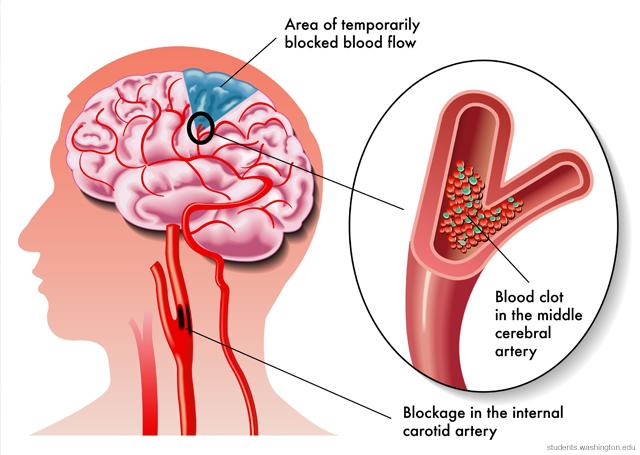Every two years since 1977, the World Health Organization (WHO) publishes a list of medicines which are deemed essential and in order to attain the organization's goal of ensuring universal access to healthcare and medicines.
The list provides a minimum number of medicines for a basic health-care system. It is based on a medicine's efficacy, safe and cost-effectiveness for priority diseases of a given area or population.
Source: WHO Model Lists of Essential Medicines
One Healthy Idea A Day
Sunday, November 13, 2016
Wednesday, August 17, 2016
The Ten Commandments to Prevent Stroke
2. You shall move frequently.
3. You shall balance your diet.
4. You shall reduce weight.
5. You shall quit smoking.
6. You shall take care of your heart.
7. You shall control your diabetes.
8. You shall drink alcohol moderately.
9. You shall ease your stressful life.
10. You shall control your cholesterol.
Source: US News
Image: https://resize.mantisadnetwork.com/mantis-ad-network/image/fetch/w_750,q_75,c_limit,f_jpg/http://uploads.medicaljane.com/wp-content/uploads/2014/12/stroke2.png
Monday, May 2, 2016
Asparagus
Asparagus is a great choice for boosting nutrients in our diet. It’s a rich source of folate; just four spears provide 87% of our daily needs for this B vitamin, which is important for healthy blood, immunity and protecting against birth defects such as spina bifida in developing babies. Asparagus is also a rich source of vitamin K, good for healthy bones and blood clotting, and it’s a prebiotic so it helps to keep our digestion healthy and our immune system strong. Plus, with just under 7kcal per spear, asparagus is a good replacement for crisps or crackers to enjoy with dips.
Healthy Food Guide UK. Image courtesy of foodiesfood.com.
Tuesday, April 26, 2016
Metformin for Kidney disease
[The US] FDA concluded, from the review of studies published in the medical literature, that metformin can be used safely in patients with mild impairment in kidney function and in some patients with moderate impairment in kidney function.
Full article:
http://www.fda.gov/Safety/MedWatch/SafetyInformation/SafetyAlertsforHumanMedicalProducts/ucm494829.htm
Saturday, March 19, 2016
Quote of the Day: Marijuana and the Brain
From: Visual.ly. Click image to enlarge
In the March 2016 issue of the Journal of the American Medical Association's Psychiatry article, Dr. Nora Volkow of the US National Institute on Drug Abuse (NIDA) warned:
This is not a problem that is specific to marijuana. Young brains and drugs shouldn't mix. Period."Dr. Volkow explained that young brains are engaged in a protracted period of 'brain programming,' in which everything an adolescent does or is exposed to can affect the final architecture and network connectivity of the brain."
Pam Harrison (March 17, 2016) "Legalized Cannabis and the Brain: NIDA Sounds the Alarm." Medscape Internal Medicine.
Have a High IQ? Thank Your Parents for It
Evidence has shown that high IQ heritability and IQ scores are closely correlated with academic performance, as well as occupation, health and income. Numerous studies find that the heritability of intelligence rises from about 20% in infancy to as much as 80% in adulthood. This means that majority of IQ differences between adults can be attributed to inheritance.
This effect may also be increased by the tendency of men and women to choose partners who are similar to themselves. Correlations between married couples are greater for intelligence than they are even for personality or height and weight, an effect that increases heritability.
Thus, a person's success will depend not only on one's upbringing, education, friends, health and other factors but heredity plays a large part as well.
SB (March, 2016) "Q&A: Are academic traits genetic?" BBC Knowledge volume 8 (issue 3), 92.
Monday, March 14, 2016
NSAIDs: Drugs for Pain
 |
| Click the image to open the brochure |
Examples of NSAIDs (generic names) are:
- Acetylsalicylic acid (Aspirin) (Salicylates)
- Diclofenac (Acetic acid derivatives)
- Naproxen and ibuprofen (Propionic acid derivatives)
- Meloxicam (enolic acid derivatives)
- Mefenamic acid (anthranilic acid derivatives)
- Celecoxib (COX-2 inhibitors)
- Osteoarthritis
- Rheumatoid arthritis
- Mild-to-moderate pain due to inflammation and tissue injury
- Low back pain
- Inflammatory arthropathies (e.g., ankylosing spondylitis, psoriatic arthritis, reactive arthritis)
- Repetitive Stress Injuries
- Headache
- Migraine
- Acute gout
- Dysmenorrhoea (menstrual pain)
- Metastatic bone pain
- Postoperative pain
- Muscle stiffness and pain due to Parkinson's disease
- Pyrexia (fever)
- Ileus
- Renal colic
- They are also given to neonate infants whose ductus arteriosus is not closed within 24 hours of birth
NSAIDs are generally known to cause peptic ulcer and gastrointestinal bleeding. In the US, 60% of 14 million people taking NSAIDs will have side effects. Thus, patients are usually advised to take them during or after meals. COX-2 inhibitors give lower risk for ulcer bleeding compared to the other NSAIDS.
As for aceclofenac, it is reported to be safer than the other commonly-used NSAIDs (ibuprofen, naproxen and indomethacin) in causing stomach ulcers. The usual dosage is 100 mg twice a day.
Subscribe to:
Posts (Atom)




